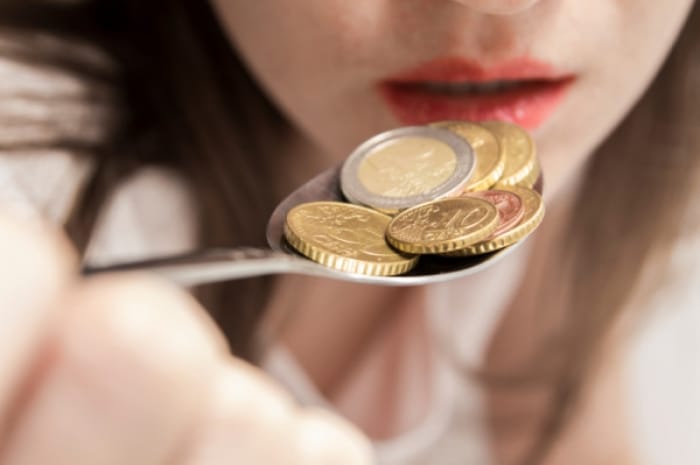Every now and again, we all find ourselves with a rather unusual or unpleasant taste in our mouths. Sometimes it’s strange, sometimes it’s downright nasty – either way, it’s something we’d like to get rid of.
Of course, in many instances the cause of the strange taste is perfectly obvious. It could be that you’ve recently eaten something that had left behind the kind of residue that takes a while to break down – onions, garlic and so on. Likewise, it could simply be that you’d been sleeping for the past eight hours with an open mouth, drying your mouth out in the process and allowing germs, bacteria and food debris to do their bidding. In which case, you’ll usually be greeted in the morning with an odd taste in your mouth and nasty breath as a bonus!
But in terms of specific tastes, there’s one example that’s far more common than you might think. Do you find yourself with the taste of old pennies in your mouth that just doesn’t seem to shift? You’ve already bought the best electric toothbrush recommended by dentists and the best mouthwash for bad breath, yet for some reason the taste just keeps coming back. It’s slightly metallic – a little like copper and returns over and over again. It might not be overpowering, but you can tell it’s there.
Sound familiar? If the answer is yes, you’re far from alone.
A Common Problem
If you’re experiencing a metallic taste in your mouth, the first thing to be aware of is there’s probably no need to panic. In very isolated cases, metallic tastes in the mouth may indicate a serious underlying illness, including certain cancers, diabetes, liver or kidney problems. However, you will usually have additional symptoms on top of the metallic taste in your mouth, which will indicate what may be causing it. Nevertheless, it’s always worth speaking to your doctor or dentist, just to be safe.
However, if there is no serious underlying health condition at work, the metallic taste in your mouth it something that you need not be too worried about. It may be unpleasant and annoying, but chances are it is not going to do you any serious harm. What’s more, there are probably plenty of things you can do to help alleviate or at least treat the problem, without resorting to extreme measures.
So according to doctors, dentists and health experts in general, what are some of the most common, non-severe causes of metallic tastes in the mouth?
Poor Oral Hygiene
Well, believe it or not the number-one culprit in most cases of metallic tastes in the mouth is nothing more than a poor oral hygiene regime. The simple fact of the matter is that if you are not brushing, flossing and using mouthwash on a regular basis, you are probably living with a less-than healthy mouth. A mouth that isn’t kept healthy isn’t able to do its job properly, which is primarily to break down food, minimise the build-up of bacteria and prevent you from getting sick. A metallic taste can be caused by infections of the teeth and gums, which you run a much higher risk of if your mouth is not kept in great shape. So first of all, try stepping up your oral hygiene regimen and see if this helps.
Prescription Drugs
There are plenty of prescription drugs which upon being absorbed by the body have an impact on the way the natural moisture in your mouth takes. Many antidepressants for example have been associated with this effect, along with any drugs of any kind that are known to contribute to dry mouth. Of course, it is never a good idea to simply stop taking prescription medicines at any time, but it’s nonetheless worth speaking to your doctor or dentist if you believe they may be responsible for the problem.
OTC Medicines and Vitamins
There are also plenty of over-the-counter medicines and vitamin supplements that can lead to a prolonged metallic taste in the mouth. For example, anything that contains calcium, iron, zinc or copper may lead to a metallic taste – especially if being consumed in overly large quantities. If you are in any way heavy-handed with the vitamins and supplements you take on a daily basis, this could be the root cause of the metallic taste you are experiencing.
Infections
Any kind of upper-respiratory infection is largely guaranteed to lead to a strange or unpleasant taste in the mouth. This includes sinusitis, colds and anything else affecting the mouth, nose and throat. Such infections have an impact on your sense of taste and can at the same time lead to the production of a lot of nasty stuff that doesn’t taste pleasant in its own right. As it is the infection that is causing the unpleasant taste, you will usually find that the taste goes away when the infection is fought off by your body.
Pregnancy
It is also relatively common for a person’s sense of taste to be affected during the early stages of pregnancy. It is something that affects all women in a different way, though in many cases manifests as a metallic taste in the mouth. This is generally no cause for concern whatsoever and will go away on its own, though it’s always worth bringing it up with a doctor just to be on the safe side. If you are taking additional vitamins and supplements, this may also explain the metallic taste.
Cancer Treatment
Cancer patients undergoing radiotherapy or chemotherapy treatment often report metallic tastes in the mouth both during and after the period of treatment itself. It usually subsides on its own after time, though should be discussed with your doctor if you have any concerns.
Exposure to Chemicals
Last but not least, it is also possible that exposure to certain chemicals has
resulted in the metallic taste in the mouth that keeps coming back. Consumption or inhalation of lead, zinc or mercury for example can produce a metallic taste in the mouth, usually (though not always) accompanied by other symptoms. If you suspect this may be the case, seek medical advice at the earliest possible instance.

